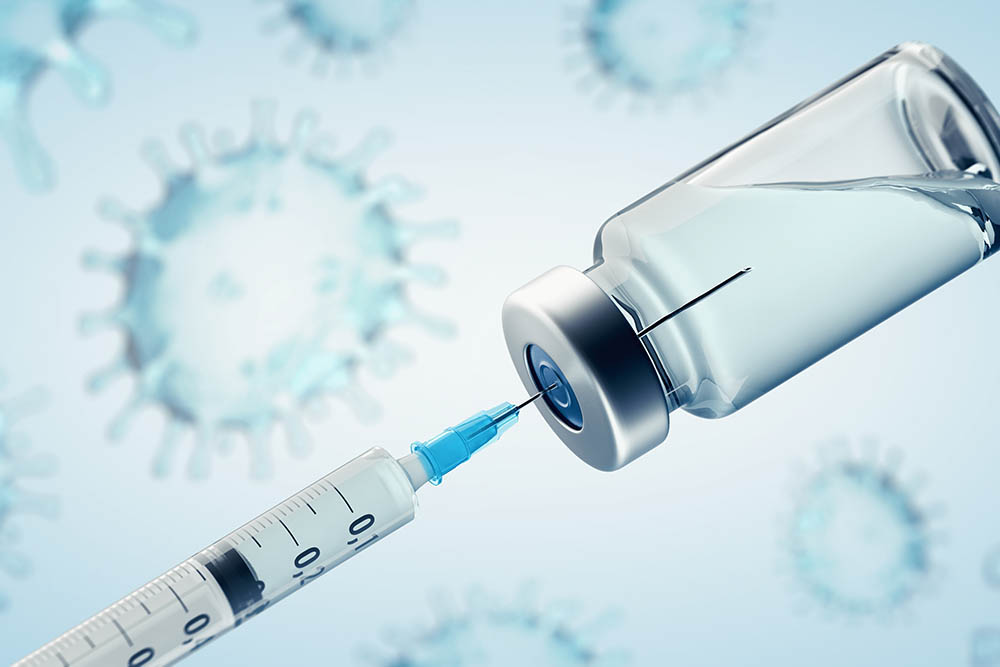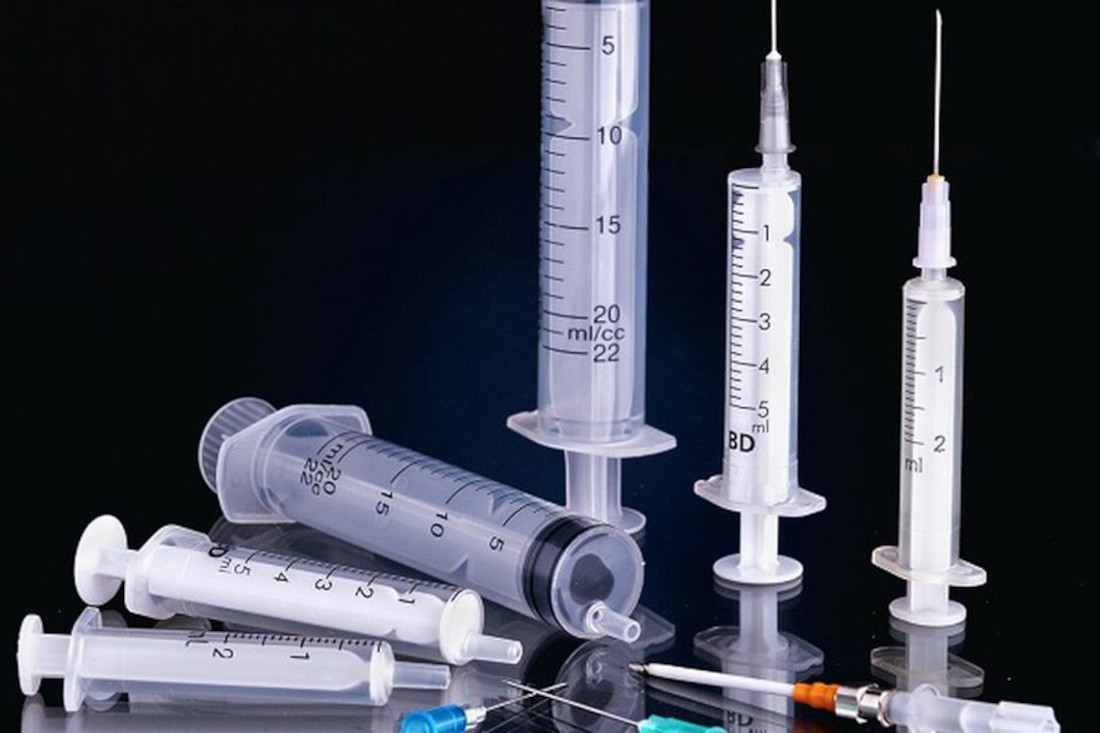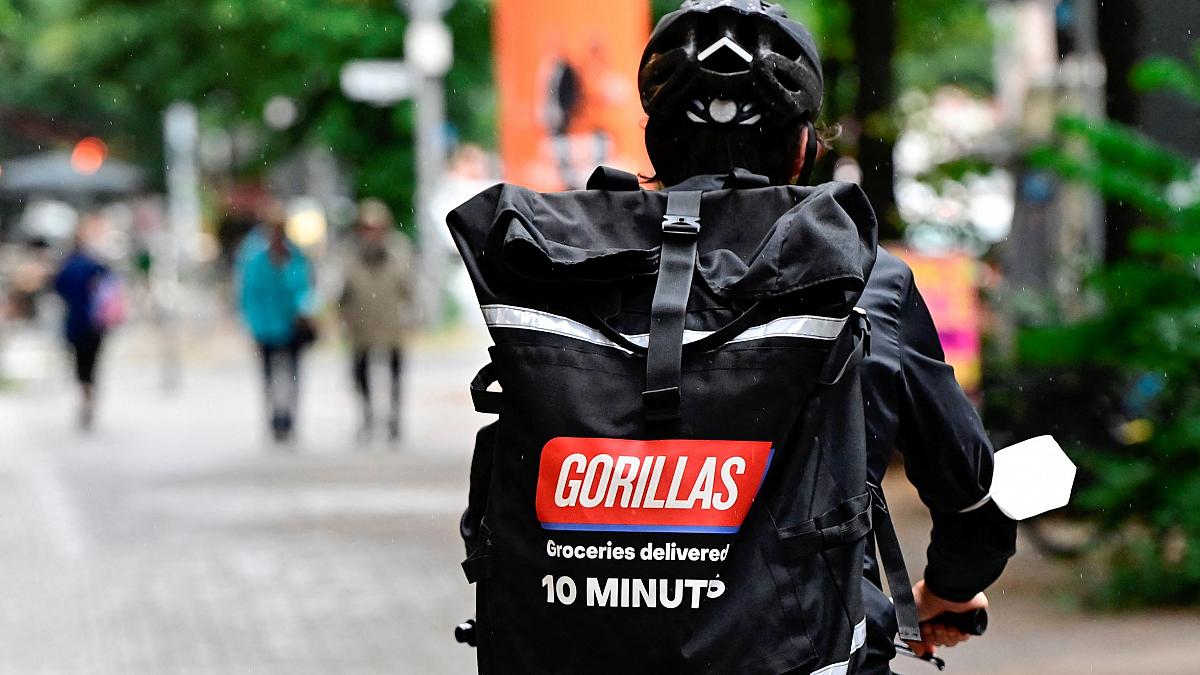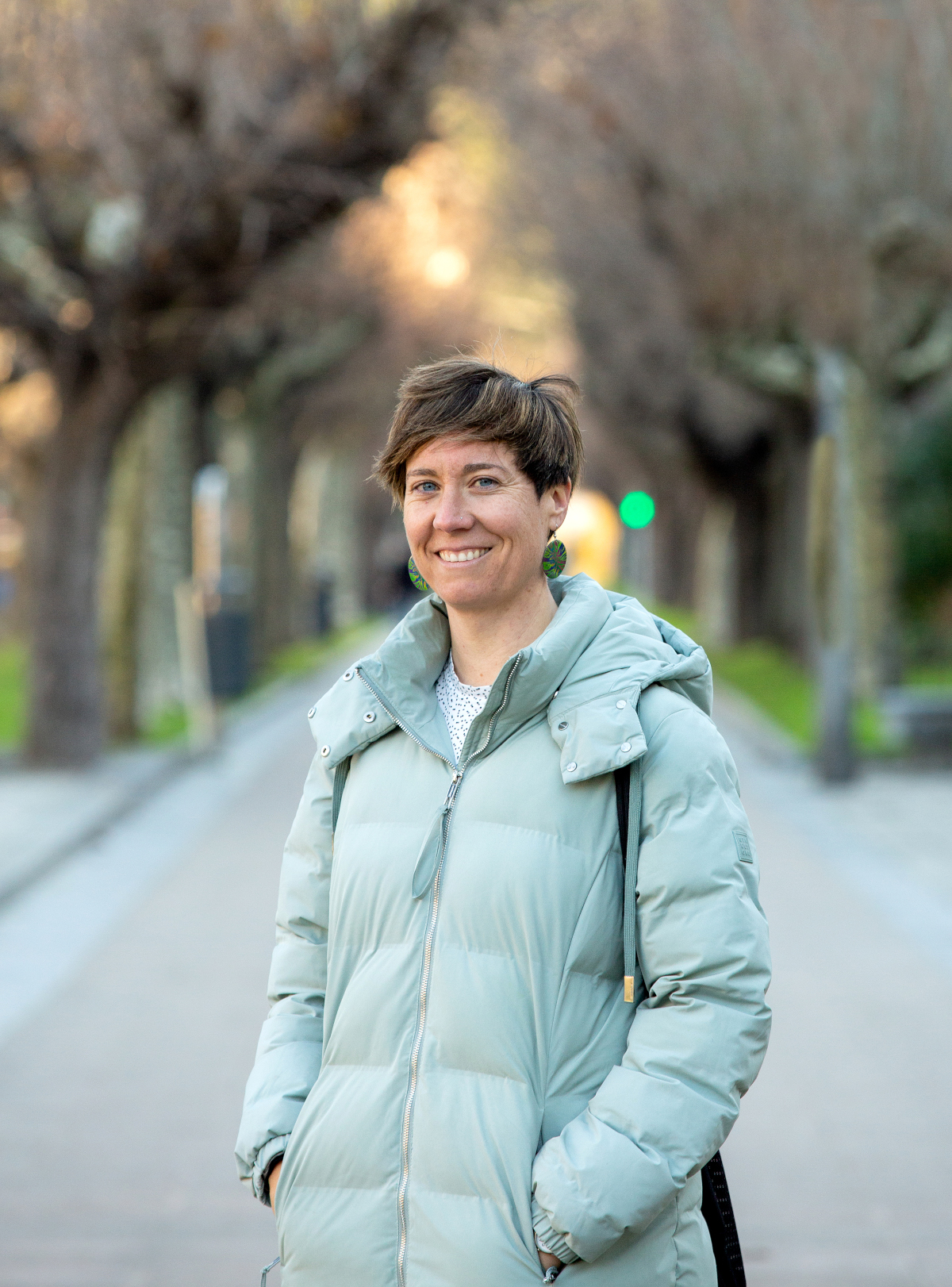What are the reasons for this unvaccinated doctor?
- We citizens have to decide whether or not to get vaccinated against COVID-19. It is optional, but the two options are not as accepted and sanctioned/awarded. To deliberate, everyone tends to put factors in the balance for and against: we are known reasons for taking, recurring by politicians, the media, doctors and citizens who practice social control. What are the opposite reasons if you want to take them into account in your balance sheet? A doctor in Osakidetza has been asked that he has not received the vaccine for the time being and that he has advised his parents to take it.

It is not easy to interview health workers who have not received the vaccine. On the one hand, because they are an absolute minority and, on the other, because they feel that making their decision public will only bring them problems. This Primary Care physician at Osakidetza has agreed to meet with us and answer our questions, but without giving his name or image.
"There is a lack of a critical opinion on the subject," he says: "The health sector, governments and the media are aligned in favor of a resounding yes. But there are doubts, as is normal. And not revealing the doubts, or casting all the doubts in the drawer of the negationists seems to me to be a mistake." He explains that the perception of health workers about their environment and vaccines has changed over time: "In the early fall and winter of last year, when it seemed that the vaccines were far away, there were among some colleagues a great skepticism, how something was going to come out so quickly from scratch, and when mRNA started talking about vaccines using the mechanism, it took a point of fear and there were quite a few doubts. I went to spend Christmas at my parents' house and then I saw a lot of television, which I normally don't do. And that really influenced my decision. At Christmas there was a very strong campaign, in the news they always said that you had to get vaccinated, what showed a minimal doubt was considered crazy, the vaccine was like a miracle salvation... all that made me so angry. But I think it had a negative impact on the rest of the peers: all that doubt among the healthcare community collapsed and people quickly entered that path. All of a sudden, I was afraid to express the doubts I had before among my peers, and I realized that they were no longer welcome. Unvaccinated health workers are anecdotal and kept secret. And many of those who didn't want to get vaccinated felt pressured by the groups, because there wasn't even room to doubt, there wasn't a debate." This doctor does not tell your environment that you have not received the vaccine: "At times I've had a hard time, you'll ask me if I'm worried and if you ask me what answer you're thinking, because I know my decision wasn't going to be right."
Why have you decided not to take it?
We ask why it has not been vaccinated at the moment: "That climate of fear provoked, the coercion, seeing that there was only one way -- I felt that under these conditions I don't want to allow myself to do so. Then there is another more rational aspect, which is that there is a lack of information. This is a phase of an essay, and we're testing with our bodies. And all right, science often has to do it, but you have to tell us that we're doing it. If from the outset we have been approached like this, I too could move forward, because I am not very afraid of vaccines. But don't be fooled. And I think it's never been clear what we're doing and what results they're having."
These vaccines are so novel that some doubts are cleared up over time, so those who have taken them before have had to take them with less guarantees about their benefits, as explained by this doctor: "Fortunately, over time it has been seen that the effectiveness of vaccines is high, but at that time we did not know. And another important thing that we don't know is whether they reduce the contagion, if they cause a person inserted to be less polluting, that is, if they are able to generate collective immunity. Vaccines that cause the opposite: they turn vaccinees into more pollutants than unvaccinated ones. So, that argument, if for you it's not that you defend others... I was lame because I didn't know it was that way."
The fear of negative consequences has also been another reason in his decision: "These vaccines are a very new, seemingly safe mechanism, but we don't know. With many vaccines and medicines, there's been a subsequent rejection, and that's how science progresses. But the more recent the mechanism, the more normal prudence is. The information is given as you want, there are conclusions that have not been fully explained, behind there are great economic interests -- all of this, by the way, I find it very difficult to let myself be taken."
According to the doctor, to make a decision it is key to assess the benefits and risks: "For example, I advised my parents to get vaccinated. They are at a higher risk age, have fewer years before to withstand the long-term adverse effects of vaccines, and if atrocities are not negligible the possibility of poor evolution. In my case, being young, without risk factors -- I think my chance of developing coronavirus with complications is very small, and on the contrary, I have a long life ahead."
Whatever decision is taken, the possible consequences will be individual. In this sense, this doctor explains that it is easier to adopt a passive and non-active attitude: "Getting vaccinated is an active decision, while the arrival of the coronavirus and what can result from it, depends more on chance. It seems to me different to decide to put something potentially painful in my body and, on the other hand, that the damage should come to me. When this damage is part of the interaction between beings and life, it is more accidental to me. In what happens, my participation is passive, I am not actively participating. If I get infected with viruses and that's why I have long-term complications, it's happened and see what's going on in the future. But taking something by my own decision and waiting and trusting later hurts me more."

"The most joyful unbelievers!"
In the arguments and campaigns in favor of the vaccine, the main message has been "my vaccine protects you", solidarity has been put on the axis. He explains that blackmail is emotionally effective: "In times of closure many citizens became balcony policemen and with the vaccine the same happens, it is a pure moralism. To what extent do people actually put the vaccine on for others and to what extent is that question of solidarity the way people come into play? And when you're considered unsupportive, it hurts and gets sold in your decision not to integrate you, I also get a lot of moral dilemmas. Because it's easier to accept you being put at risk, but thinking you can put others at risk puts you at risk."
He denounces that the conduct of those who say that those who have not been vaccinated are unsupportive is tragic: "Most of the time the vaccine is administered by obedience, because they say it's OK, because everyone does it, and period. I don't think the fear of getting sick from COVID-19 is causing so much in the decision to get vaccinated. The issue is on a different path."
In principle it is optional to take or not, but it explains that in reality the decision is not taken "so freely": "They don't teach us what's going on with each election, and they don't present the two options as equivalent. One is fully punished and the other is rewarded and undervalued for the risks and the small letters it carries. Blackmail is a form, I don't oblige you, but here you will stay without COVID-19. But it's a stupid argument, because whoever accepts the vaccine only for traveling and taking planes that terrorize the world will denounce you as unsupportive. The debate is very much involved, it is reduced to categories of cascotes and bad, and that is what we have to decide. And it's better to be in favor of the linchos, because if you don't all go against it. Everyone criticizes vaccines. The general trend is to follow the mainstream."
It considers that taking such a decision without proper training is very difficult: "I am trained in health and I have the ability to access some information, I see many things that do not go hand in hand and these doubts have no place. That is the problem: it is not that the debate between people does not reach the media, it is that there is no debate between people. Why is there no debate? Because there is unanimity or because there are things above all and therefore cannot be touched? I mean, is science at the service of other things? ".
Is the vaccine the only way?
The citizen understands that the awareness of being in the midst of a pandemic and the willingness to help you overcome it greatly influences the decision to get vaccinated. Is there any other solution than the vaccine? The doctor says: "We don't know much. They're theories. In fact, a virus is interested in not dying that body that has a tenant. It is normal that, naturally and over time, a collective immunity is formed, but it also depends on how much the virus mutates. For example, with the flu this mechanism is not worth so much. And yes, surely naturally mortality was going to go down and we would be living with the virus. But, of course, the damage that this causes on the road may not be acceptable or they do not want to accept ...".
In this situation, he points out that the solution may be the vaccine, adding: "It also depends on the solution we seek. If the goal is to quickly end the virus, the vaccine is probably the best option. But it's also a way of narrowly approaching this much larger problem. I believe that this is the problem that must be addressed from environmentalism, from the way of living, from the way of travel, from the way we live with the environment, from the way we accept death... There are a lot of dilemmas at stake, and surely capitalism cannot accept those changes and, therefore, the only way for it is to interrupt this virus in the moment and wait for the next one to come. That seems to be the future that comes to us."
The vaccine indicates that we do not yet know what will happen with the pandemic: "One option is that the coronavirus continues to exist and that most people, either with a vaccine or after being infected with the coronavirus, get enough immunity to not have too many complications... but we don't know what's going to happen in the future with the immunity that vaccines produce. For example, there are vaccines such as the flu that cannot achieve herd immunity: on the one hand, because they do not reduce contamination, on the other, because the immunity they produce is temporary and on the other, because the virus mutates quickly. Therefore, in these cases, we do not seek collective immunity, but rather we choose to protect the most vulnerable group. With this vaccine we don't know what's going to happen, what immunity it produces, how the virus will behave... we don't know what strategy it's going to adopt in the face of all this."
"I don't think all the adverse effects of vaccines are detected."
After vaccination you have been asked what method to record side effects, known as pharmacoclimacteric: "Theoretically, physicians have to report the negative effect. But the truth is that the procedure is quite complex and we have very little time for each patient. In many cases, moreover, it is unclear whether or not it is a harmful effect, i.e., whether it is related to the vaccine or whether, by chance, it has been coincident over time. Therefore, in the face of doubt, you often let go. It's hard to mark a symptom as a harmful effect, I think you have to be very sure to. To this we must add that there are many people who do not inform the doctor of the adverse effects.
I therefore believe that not all the adverse effects that are occurring are being detected. That's my perception, what I've seen. And personally, I recognize that with the little time I have and with what I have difficulty complying with the procedure, I only make that paraphernalia when I see it very clear. The biggest problem in primary care is lack of time."
TABLE
In this report we collect in a separate box the content of this question:
In what cases do you have to think four times about getting vaccinated?
Pandemiaren eragina indarkeria matxistan azterketa kaleratu berri du Espainiako Gobernuak. Bertan ondorioztatu dute eraildako emakume kopurua gutxitu egin dela, hauek kontrolatuta eduki dituzten denbora gehitu izanaren ondorioz. Baina emakumeen suizidioak gizonenak baino gehiago... [+]
Merkatura ateratzear den Hipra txertoari patenteak kendu diezazkiola eskatu diote hogei erakundek Espainiako Gobernuari. Izan ere, Kataluniako multinazional honek COVID-19aren aurkako txertoa egiteko entsegu klinikoetarako diru publikotik gutxienez 15 milioi euro jaso ditu.
Nafarroako Gobernuak bart gauerditik aurrera indargabetu ditu COVID-19aren aurkako neurri murriztaile gehienak. Kalean eta ikastetxeetako patioetan ez da derrigorrean maskararik erabili beharko, gaueko aisialdiak eta ostalaritzak pandemia aurreko ordutegiak berreskuratuko... [+]
"Osasun Sailaren immobilismoaren eta konponbide ezaren aurrean", otsailaren 25ean greba deitu dute lehen arretan ELA, SATSE, LAB, CCOO eta UGT sindikatuek eta otsailaren 28an Osakidetzako esparru guztietan. Horrez gain, otsailaren 26an manifestazioak egingo dituzte... [+]
Chop! There it comes again, I've felt in my chest early, this puncture is rare.
Chop! I've gently rubbed the part of my heart above the jersey. To see if it happens, I have already said it under, so no one can hear it. At present, care must be taken to control what you are going... [+]
La Bogue da Frantziako Limousin (okzitanieraz Limosin) eskualdeko hedabide alternatiboa. Kolektibo autonomo batek kudeatua, boluntarioek egina eta militantea, bere burua kokatzen du mugimendu anti-autoritarioaren baitan. Bertan agerturiko artikulua itzuli dugu euskarara.
“Proba bat egin ostean, COVID-19an positibo eman dut. Ondo nago, sintoma arinekin. Hurrengo egunetarako aurreikusitako agenda publikoa atzeratu eta konfinamendutik lanean segituko dut”. Kendu agenda publikoaren zera hori erditik, eta edonorenak izan zitezkeen... [+]
Igande eguerdian milaka lagun atera dira Donostia, Bilbo eta Gasteizko kaleetara gehiengo sindikalak deituta, kalitatezko osasun publikoaren alde eta Lehen Arreta jasaten ari den kolapsoaren aurka. Oso gogor mintzatu dira Iñigo Urkullu buru duen Jaurlaritza osasun... [+]
Osakidetzaren azken protokoloak dio positibo baten kontaktu estua izanagatik COVID-19a azken 180 egunetan pasatu duenak, txertatuta egon edo ez, ez duela etxean berrogeialdirik egin beharrik, baldin eta ez badauka sintomarik.
Txertoaren hirugarren dosia abian da herrialde aberatsetan eta laugarren dosia ere ezarriko zaie arrisku taldekoei. Denborarekin txertoek eragindako antigorputzak galdu egiten dira, eta horiek gehitzeko errefortzu dosiak jartzea da gobernuen estrategia. Baina txertoen alde... [+]
The way science becomes public policy is governed by political and economic calculations, as well as by the moral and ideological commitments of politicians, parties and advisers.” Sociologist Jana Bacevic said this in April 2020 at The Guardian.
We have all been able to see... [+]























